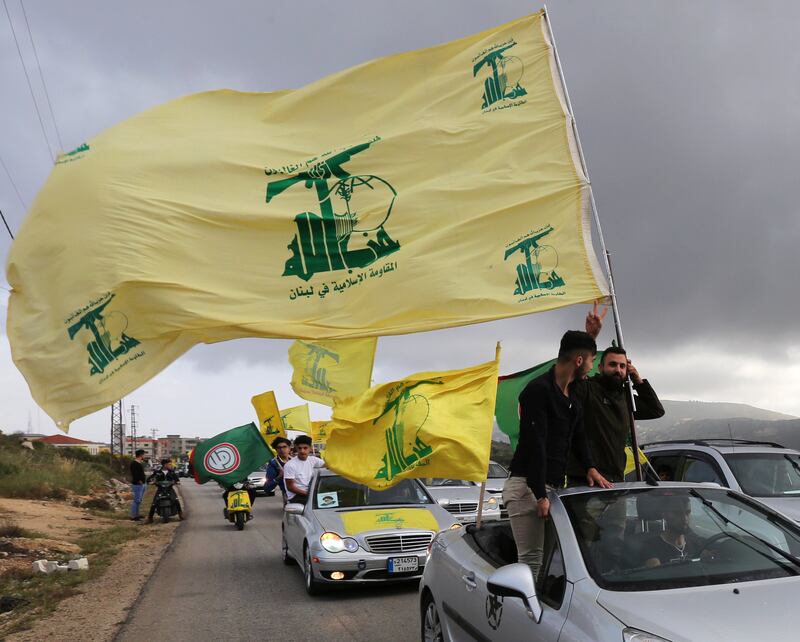The US on Tuesday sanctioned several Hezbollah operatives in South America and Lebanon that Washington accused of generating revenue for the group's terrorist activities.
Among those hit with the sanctions was Amer Mohamed Akil Rada, who helped conduct a 1994 terrorist attack on a Jewish community centre in Argentina. The attack killed 85 people and injured hundreds more.
The sanctions also name individuals and entities that are involved in a network that provides cover for Hezbollah's presence in Latin America, the Treasury and State departments said in joint news releases.
The sanctions were made in co-ordination with the Drug Enforcement Administration.
“Today’s action underscores the US government’s commitment to pursuing Hezbollah operatives and financiers no matter their location,” said Brian Nelson, undersecretary of the treasury for terrorism and financial intelligence.
“We will continue to root out those who seek to abuse the US and international financial system to fund and engage in terrorism.”
An operative and leader for Hezbollah, Akil Rada co-ordinated several commercial enterprises for the terrorist group including charcoal exports from Colombia to Lebanon. Roughly 80 per cent of the profits from the enterprise benefited Hezbollah, Treasury said.
Akil Rada, who now lives in Lebanon, worked in South America for Hezbollah for more than a decade.
In addition to the attack in Argentina, he was also involved in the bombing of the Israeli embassy in Buenos Aires in 1992.
Mahdy Akil Helbawi, Akil Rada's son, was also hit with sanctions for running a charcoal company in Colombia. Rada's brother, Samer, was sanctioned for being a Hezbollah member and has been linked to drug trafficking and money laundering operations across Latin America.
Charcoal is often called “black cocaine” in narcotics circles because it is used to disguise cocaine's transfer, according to a 2020 report by the Atlantic Council.
The Akil Rada family was named in the Atlantic Report into Hezbollah's South American networks.
The 2020 report said family members still operate in Venezuela and are involved in the cryptocurrency industry.
The report alleged that the Akil Rada family is connected to the regime of Venezuelan President Nicholas Maduro through their relationship with Tareck El Aissami, the country's former vice president who has been indicted in the US on drug-trafficking charges.







